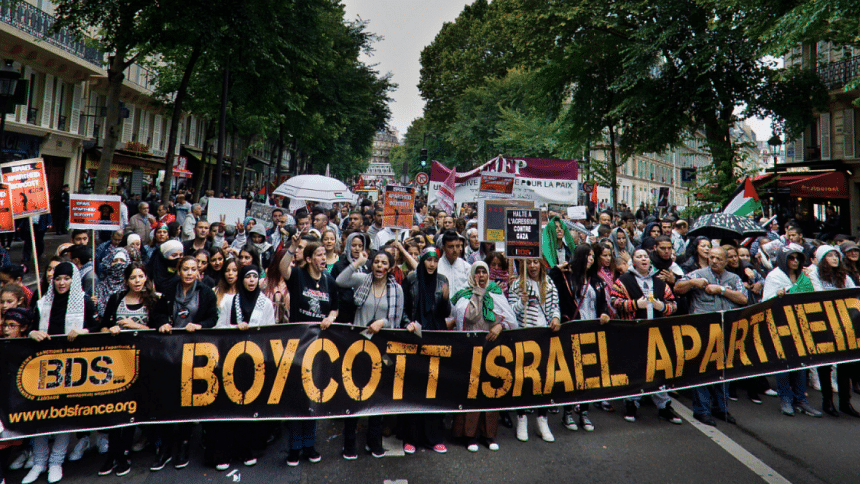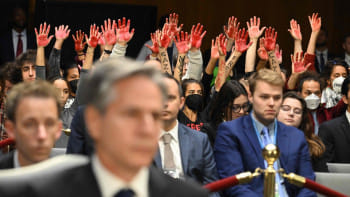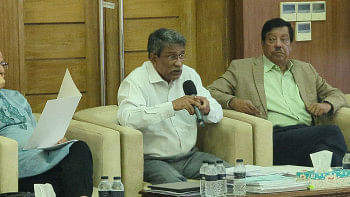Will boycotting Israeli products bring peace for Palestinians?

In the wake of the Coke Studio Bangla concert snafu, amid Israel's onslaught on Gaza, the Boycott, Divestment and Sanctions (BDS) movement has gained much traction in public discourse and awareness. While boycotting companies and institutions complicit in oppression allows consumers to use the power of their pockets and individual responsibility to show solidarity, it is useful to evaluate how effective boycotting can be in upholding the principles of the movement.
According to the Palestinian BDS National Committee, the principles of the movement are ending occupation and colonisation, recognising the fundamental rights of Arab-Palestinian citizens of Israel to ensure full equality, and respecting the rights of Palestinians to return to their homes. The BDS movement is modelled on and compared to civil rights movements to eliminate apartheid states such as the then racially-segregated South Africa, which did away with the system in the early 90s.
Previously successful movements also include boycotting Japanese silk after Japan invaded China in the 1930s; the Boston Tea Party protests against the British government, ultimately leading to the American Revolution and independence of the United States from the British Crown; and non-violent mobilisation such as Gandhi's Salt March. We have evidence that localised and targeted boycotts can galvanise the public into action and propel institutions and governments to change behaviour. However, the backdrop that the BDS movement operates against needs to be examined to understand if it has enough clout to be effective—effectiveness defined by the impact BDS can have on the survivors and victims of the occupation.
BDS is a three-tier movement which involves the individual with purchasing power, institutions which create infrastructure, produce and transfer knowledge and wealth, and governments which are authorised lawmaking and implementing machines. The forms of boycott include those of cultural and academic elements along with economic boycotts, which seem to be more prominent in current public dialogue.
But simply boycotting may not be as effective if divestment and sanctions are missing. There are no conclusive results that show that broad boycotts are as effective. It is also important for boycotters to understand the complex economics of global supply and value chains, production networks of intermediate and high-end products and services, and the intricate matrix of transnational corporations to evaluate if individual actions can meet the principles of the movement. The structural stamina of the transnational capitalist system can only be directly shaken through major divestments and sanctions. In spite of that, the wave of strong global public opinion in support of justice for Palestinians is possibly why the brief humanitarian pauses are made possible, because leaders need voters to remain in office. But would a localised boycott be strong enough to push an occupying force and its allies to change their direction? Probably not.
The Israeli economy has historically dealt with decades-long boycotts from its Arab neighbours, turning the state into an "economic island." Over time, the economy developed resilience and the state became adept at bypassing boycotts by utilising third-country subsidiaries. Israel is the fourth most successful economy in the world. The state specialises in producing high-end technology products and services which cannot be easily substituted. The US' leading companies such as Google, IBM, and Facebook have research and development cells in Israel. Major universities in the world also have robust research collaborations with Israeli institutions. The advocacy for BDS is further complicated by the well-rooted pro-Israel lobby groups and their campaign contributions that define the contours of US and global politics.
Regardless of its slim chance of having a larger impact on the economy of Israel, the pro-Israel lobby groups, US politicians, and the state of Israel itself see the BDS movement as a strategic threat and take it seriously enough to introduce anti-BDS legislation and dedicate a whole ministry to combat the movement. Israel's Ministry of Strategic Affairs was created in 2006, and it has since been campaigning against BDS and going after its activists. The BDS movement has also been compared to boycotts experienced by Jewish residents in Nazi Germany. However, the BDS movement is against a powerful occupying state, not an ethnic or religious group.
The BDS movement also suffers from not having an official position on either a one- or two-state solution, or a peace process, which opens up the movement to different goals and ideas and creates fractures and fringes within the movement. Prof Lawrence Glickman at Cornell University, who studies American consumerism and boycott, points out that localised and targeted boycotts have historically been more successful. So, the broad boycott directives against an economy that is deeply embedded in the works of the world's most dominant economies may not fulfil the goals of the boycott.
The sale of arms is a central foreign policy tool for the US, and Israel receives a qualitative military edge over other countries. Israel can directly engage with US companies to buy arms, unlike other countries which have to go through the Department of Defense before they can purchase arms from the US. So boycotting Coca-Cola or other consumer product sellers would not necessarily address the key factors that directly enable occupation. The Turkish parliament's recent boycott of Coca-Cola is more symbolic and perhaps merely for optics, as beverage production is mainly localised. There was a real potential to put pressure on Israel to rethink its current strategy at the Arab-Islamic countries' summit earlier this month. Oil and gas supply and price setting have acted as deterrence to balance out the US, Israeli, and Arab interests in the past, but those were not the avenues taken this time around.
As the BDS movement continues to operate across the behemoth mesh of differing and opposing national interests of Western, Muslim and Arab states along with those of transnational corporations, it has gained some successes, such as getting some governments to end free trade agreements, forcing companies to withdraw from the occupied territories, and compelling universities to sever institutional affiliations and ties with Israeli institutions.
There is also a larger elephant in the room that the BDS movement needs to address, and that is the reconstruction and rebuilding of Gaza when the current episode of carnage comes to an end. Gaza's poverty has gone up by 20 percent, with 390,000 jobs lost. The more protracted the violence is, the more the poverty rate is expected to rise, making the resettlement and rebuilding process harder. As tenuous and as unfavourable the arrangement for resettlement is, the international community and the Palestinians would have to be bound by Israel, which will likely dictate the terms of reconstruction and resettlement.
Throughout previous episodes of escalations, Israel has managed reconstruction, such as by vetting materials that go into Gaza—making the process time consuming and expensive. Construction is one of the leading employment sectors for men in Gaza. One of the factors that the movement needs to account for is how boycotts would impact the victims and survivors of the occupation, especially in the absence of viable Palestinian institutions which would secure livelihood and protection for Palestinians.
While the mechanics of involvement of many corporations that are complicit in the occupation are not transparent, some connections are clear: such as the Israeli McDonald's and Burger King donating free meals to the Israeli military, Puma funding the Israeli Football Association, Amazon launching Amazon Web Services (AWS) data centres in the country with an investment of $7.2 billion—directly supporting the state's data storage and government workload—Starbucks suing its workers' union for advocating for Palestine, Hewlett Packard (HP) providing computers to Israeli military, and Airbnb having listings of settlements on the occupied land.
Regardless of the tenacious systems of injustice the BDS movement works against, boycott has historically been a useful tool for advocacy and solidarity. It is the most accessible tool at disposal for international action and enables people to push corporations and governments. It gives individuals the ability to raise public awareness and put one's money where one's mouth is. Mass boycott is reflective of the strength of public opinion to create political change. The BDS movement has grown stronger with a younger and more educated global population increasingly supporting the Palestinian cause, with similar trends of shifting public opinion in the US as well, as Israel does not have as high favorability as it used to have. Although Israel's major trading partners will likely continue to maintain substantial economic ties, boycott is a personal prerogative of the global citizens, which must be protected.
Sarzah Yeasmin is a Boston-based Bangladeshi writer. She works at Harvard Kennedy School and is currently pursuing a micro-master's in data and economics at Massachusetts Institute of Technology.
We welcome your contributions and analysis of global events. To submit articles to our new page, Geopolitical Insights, please send us an email at [email protected] or [email protected]
Follow The Daily Star Opinion on Facebook for the latest opinions, commentaries and analyses by experts and professionals. To contribute your article or letter to The Daily Star Opinion, see our guidelines for submission.

 For all latest news, follow The Daily Star's Google News channel.
For all latest news, follow The Daily Star's Google News channel. 












Comments